Logistics
Industries
Technology & Innovations
E-commerce
E-commerce Fulfillment Services
Lease & Maintenance
Semi Trucks
Logistics
E-commerce
Lease & Maintenance
Buy Used Trucks
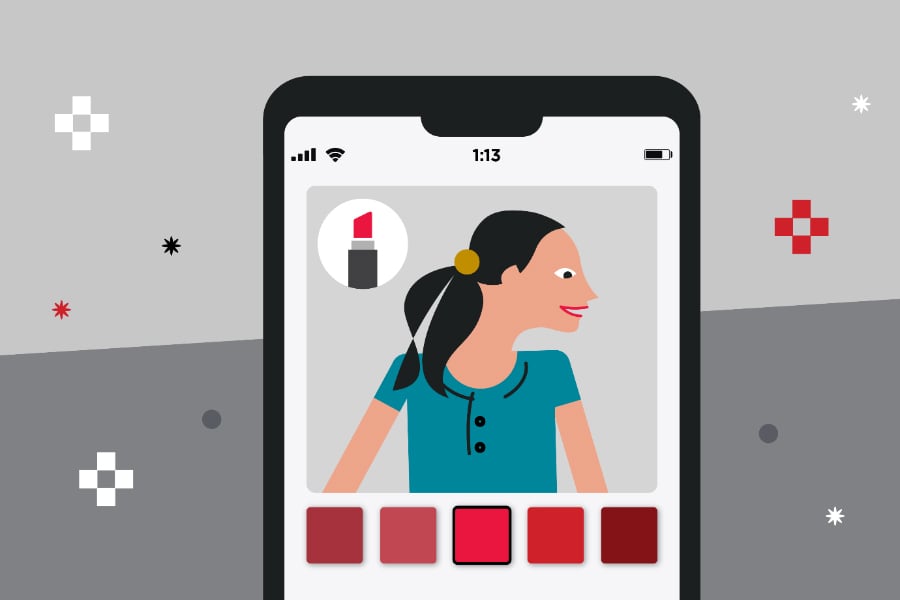
On the surface, gaming and beauty appear to have little in common in terms of a buyer persona.
The cosmetics industry has traditionally targeted consumers with stereotypically feminine looks and interests, while video gaming is generally considered to be a pastime for men, boys, and ‘nerds’ who reject more mainstream cultural pastimes.
So, why is it that beauty brands are so interested in tapping into the gaming and e-sports communities?
As retail and e-commerce become increasingly competitive, some well-known cosmetics brands are moving to the very frontier of technological change and community building - and in doing so, they are feeding off the growing popularity of immersive gaming experiences.
In this blog, we’re going to unpack why beauty is embracing the world of gaming, and what this means for the future of immersive retail:
For all the discussions about how beauty and gaming blend fantasy and reality, the digitization of beauty also has some very practical underpinnings. Faced with a growing number of social distancing and hygiene protocols during the pandemic, retailers were forced to dispense with product testers and in-store makeovers and search for new ways to assist customers.
Cosmetics products are notoriously difficult to purchase online without trying in advance. This has fuelled the growing popularity of virtual ‘try-on’ apps that allow customers to test makeup via augmented reality filters. Brands including Sephora, Nars, and Bobbi Brown have launched their own try-on apps, with Estee Lauder pairing their app with a virtual consultancy service so customers can get advice and product recommendations from customer service reps.
But others are taking the idea of digitized beauty a step further in the world of remote work and virtual meetings. No longer a tool to assist people with buying actual products, AR filters have instead become the product.
In an industry first, L’Oreal unveiled the Signature Faces Collection in 2020, a digital-only makeup line. The ten AR filters, including statement eyeshadows, lipsticks, and false eyelashes, are compatible with all popular video conferencing software including Zoom, Google Hangouts, and Skype as well as Instagram and Snapchat.
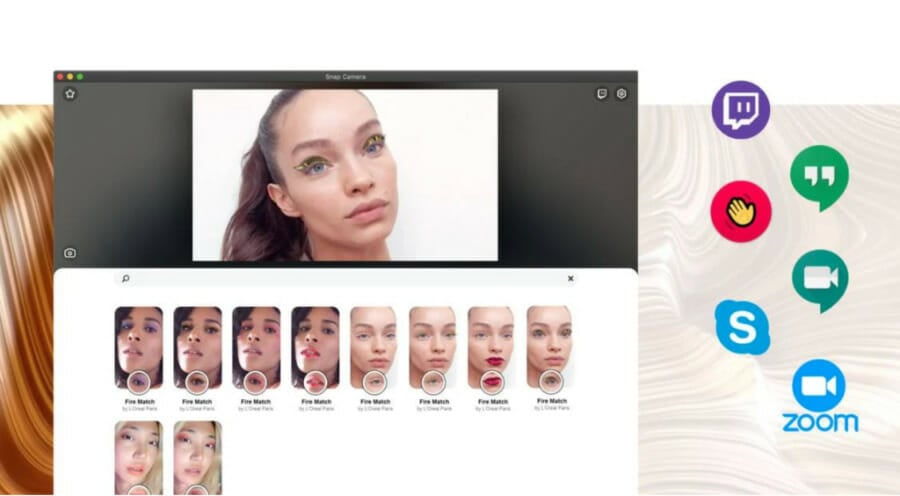
The L’Oreal collection signaled a major shift in how the beauty and cosmetics industry is addressing the growing digitization of how we work, shop, and socialize. The birth of AR beauty filters as a commodity highlights the growing convergence between our online and offline expression.
Beyond this, it’s only a small leap towards beauty playing a larger role within entirely virtual environments such as gaming.
Drest, a luxury fashion and beauty styling game available on iOS, is creating a space for consumers to experiment with real-life garments and styles - and a streamlined pathway to bring your favorite looks offline. Boasting high-profile partnerships with the likes of Gucci, Prada, and FarFetch, Drest also enables players to click straight through to the brand’s website to shop for the real-life version of a coveted product.
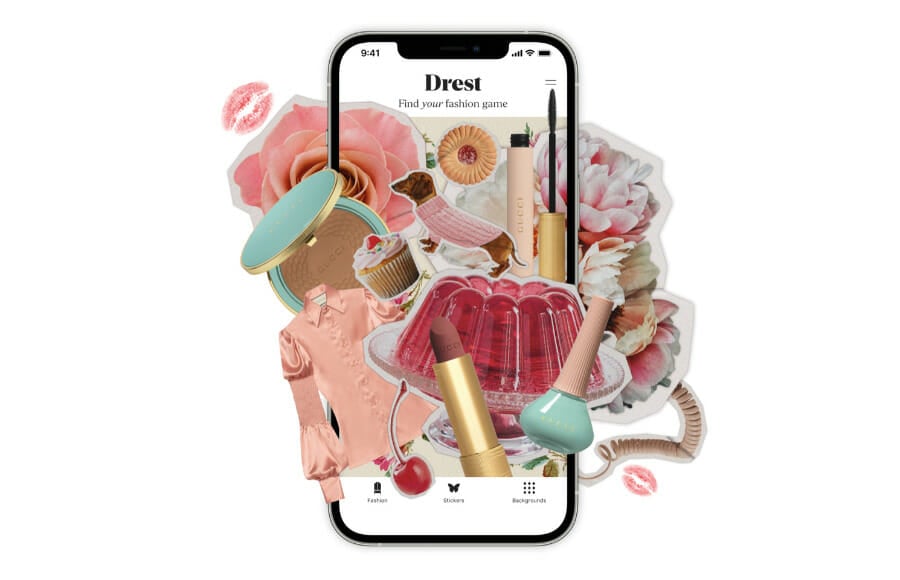
By blending the power of virtual try-ons with immersive gaming and social commerce, apps like Drest can exert a powerful real-world influence on consumer purchasing behaviors. For beauty brands, gaming platforms offer the chance to spread brand awareness and reach potential customers outside of a traditional store setting.
Contrary to popular belief, the gaming space is not only made up of angry teenage boys. Over the past decade, there’s been a noticeable uptick in the proportion of female and LGBTQ+ gamers. According to research by Newszoo, women now make up almost half of all active gamers at 46%, while 60% of the adult LGBTQ+ population are gaming at least once a week.
Moreover, Newszoo also found that so-called ‘popcorn gamers’ (gamers who watch other people play more than playing themselves) are one of the fastest-growing gamer demographics, with 46% being women and two-thirds being between the ages of 10-35.
As avid consumers of streaming channels such as Twitch and YouTube, popcorn gamers are of serious interest to brands that are looking for new ways to engage with prospective customers. For beauty brands in particular, this increasingly diverse and young community has become fertile ground for more experimental content marketing efforts.
E.LF cosmetics is one such brand who is actively blurring the boundaries between beauty and gaming. In 2021, they became the first brand to launch a Twitch channel and coined the term ‘game up’, showcasing their commitment to be at the intersection between the gaming and beauty communities.
Their ‘game up’ contest saw female gamers submitting videos of their favorite makeup looks they wear for streaming. In May, TikTok Gamers Got Talent, their latest initiative in collaboration with TikTok and Enthusiast Gaming, will see gaming and beauty fans compete over a seven-week period to win both cash prizes and E.L.F products.
The birth of the metaverse has been a major talking point within e-commerce and retail, thanks to recent efforts by Meta to bring more attention to web 3.0 and the development of real-time, 3D-rendered virtual spaces. Where VR was once considered a niche pastime for the earliest of early adopters, we’re seeing a growing number of businesses realize the potential of metaverse experiences to better connect with existing and potential consumers of their products.
The popular life simulation game The Sims offers a fantastic example of how fashion and beauty brands are beginning to realize the potential of these immersive but mostly untapped digital spaces.
In the past, players only had access to generic, unbranded fashion and makeup for their sims to wear. This changed thanks to a pioneering collaboration between the Sims 4 and M.A.C Cosmetics, which bought some of the brand’s most iconic products right into the game. In addition to being available digitally, M.A.C fans can also shop the ‘Sims 4 collection’ online and in-store:
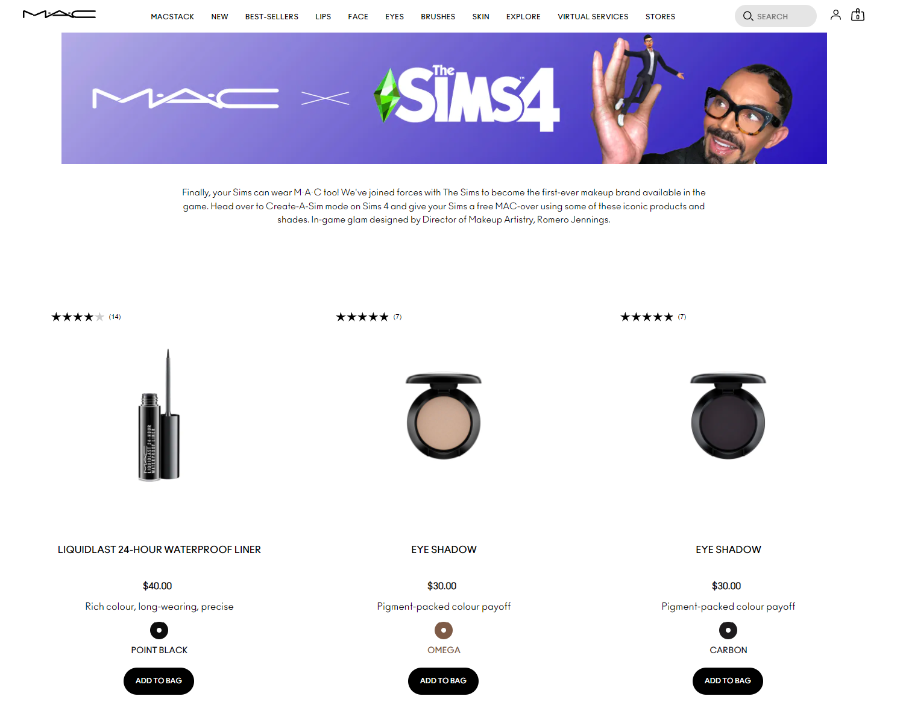
This powerful feedback loop reinforces The M.A.C identity and product catalog across multiple channels, building deeper relationships with customers who no longer just wear M.A.C products, but also use them to style their sims and gain more mastery over the products they love.
It’s worth noting that these collaborations between beauty brands and pop culture phenomena are not new. Brands such as Colorpop Cosmetics and Besame Cosmetics have built their followings in part due to teaming up with popular movies or T.V. shows offline to create limited-edition collections:
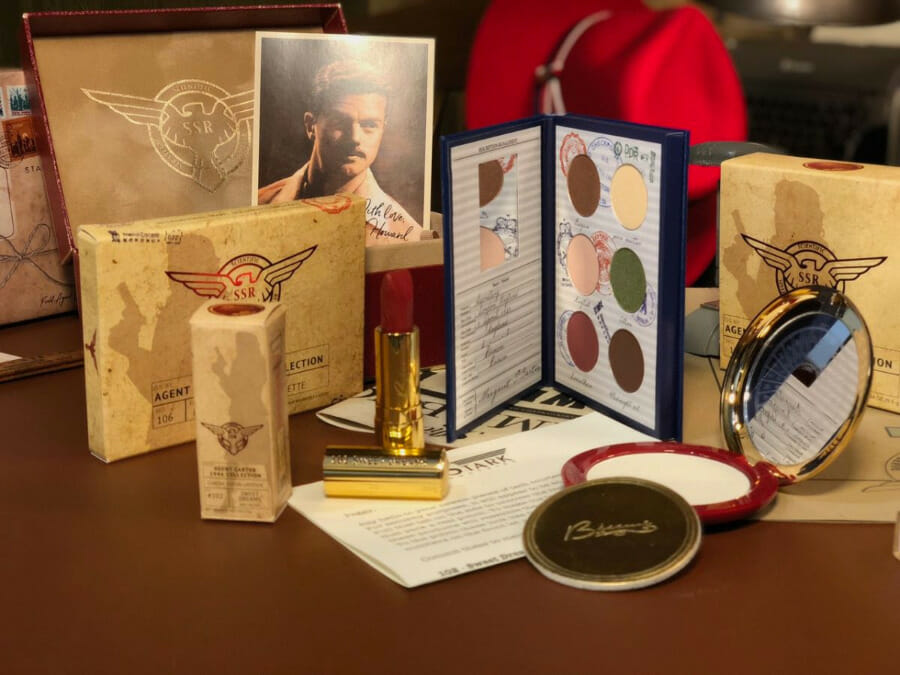
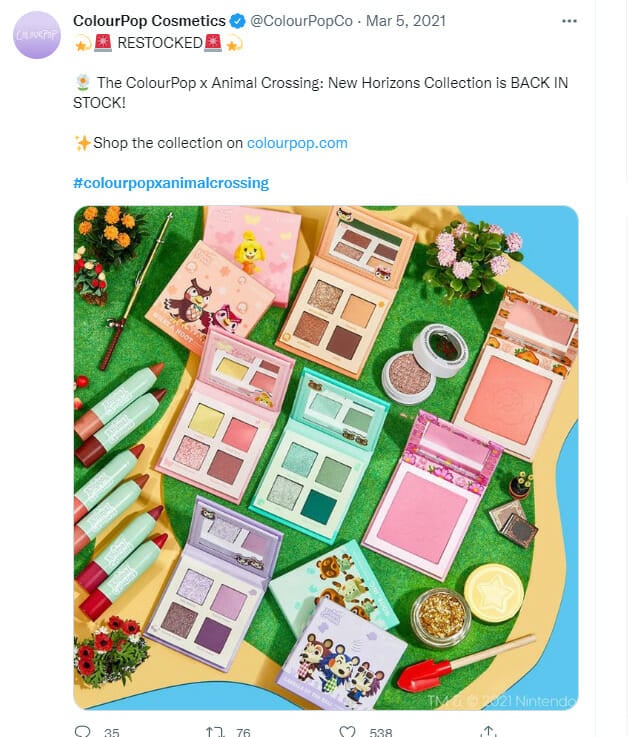
But some fashion and beauty brands are taking things a step beyond merely digitizing their products within existing games - they’re actively creating their own immersive experiences.
In January, Too Faced launched their very first virtual reality shopping and gaming experience, Maison Too Faced. Created by tech firm BrandLab360, the fully rendered 3D environment includes a variety of unique branded spaces for customers to explore, including the Hangover Garden, the Better Than Sex Stairway, the Born This Way Ballroom and the Lip Injection Plumping Parlor.
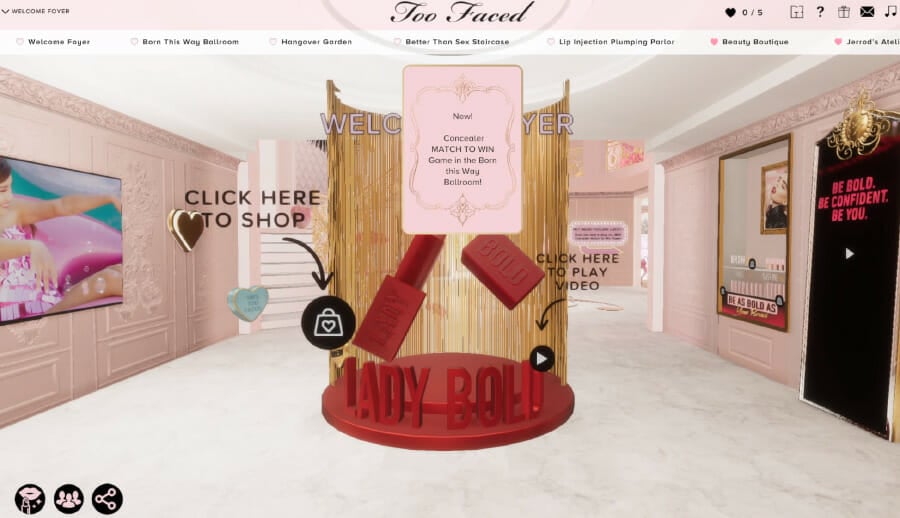
In addition to virtual shopping, consultations, and tutorials of their favorite products, Too Faced fans can also take part in immersive games to win discount codes and unlock exclusive products and spaces not accessible to other shoppers.
Best of all, the virtual nature of Maison Too Faced makes it possible for the brand to continuously evolve and adapt the space for new trends, products, and gaming experiences to keep it fresh and exciting for shoppers, without the expensive and lengthy lead time required for pop-ups in physical locations:
According to BrandLab360 co-founder Jennifer Drury, “We can update it through the year in just minutes to change the products available, update the branding, develop the style and look – providing brands with the ability to truly connect and converse with customers online all over the world.”
With their focus on escapism and fantasy, it’s not surprising that the beauty and gaming industries have seen such a strong alignment in how they approach brand awareness and audience outreach. Since the COVID-19 pandemic, we’ve seen a major shift in how beauty and fashion brands are striving to connect with customers, moving away from store-based activities to increasingly digital spaces.
As a result, beauty and gaming have never experienced such a significant overlap in their target audience and customer experience. As consumers come to expect ever more immersive and innovative shopping options, the gaming space is offering up some serious inspiration for beauty brands at every price point. By blending social commerce, assisted shopping, AR/VR, and gamified incentives, these experimental brand initiatives are bringing a new dimension to the shopping journey in beauty.